On risk, freedom, discipline
My writing mantra
I don’t remember the year, or the name of the artist, or even whether the exhibit contained paintings or sculpture, but I’ll never forget the name of the show years ago at New York City’s Guggenheim Museum: “Total Risk, Freedom, Discipline.” I immediately copied down the words and later pasted them on my bulletin board. There they still live.
“Total risk, freedom, discipline” has become my mantra. Those four words say more about my daily life as a writer than the empty term “process” can begin to suggest.
The third word, “discipline,” actually is primary. Without discipline the other two qualities are moot. Discipline means showing up every day, early, and staying in my studio at least five hours. It means plugging away at writing every one of those hours, no matter how much I hate staring at the empty page, no matter how much anxiety I feel, no matter how discouraged I am by the latest rejection.
It also means focusing, intently: I often unplug the phone in the early hours; I manage e-mail very carefully, so as not to let it rule me; I discourage friends from calling me during my work hours; I never bring personal chores (doing bills, scheduling appointments, dealing with health insurance) into my writing space.
If I just show up and keep at the writing, things always start to click.
Sometimes it’s not until the last half hour of work, but then I know I have a place to start the next morning.
The freedom part has to do with giving myself free rein, even as I stick to my strict schedule. I often start the day by puttering—watering the garden, sweeping my studio floor, putting on some inspiring music. I try to listen to my thoughts, sensing where I am emotionally. The music helps here: If I’m writing a travel story about Hawaii, slack-key guitar helps me ride the currents of my imagination; other times it’s Mozart, Nina Simone or Keith Jarrett’s The Köln Concert that helps me tune in.
Unless I’m on deadline, I work on the project that seems most true to where my imagination—or my heart—is. Freedom means the ability to work on what most energizes me in the moment. (Then discipline allows me to see projects through to completion.) Freedom also means taking a break, going and sitting in the sun, walking to a favorite café for lunch, and letting my mind wander. It also means going to the gym every afternoon. I can’t tell you how many brainstorms I’ve had in lane three of the swimming pool, or working up a sweat on a bicycle—or even weeding. Each day, I try to give myself free moments, down time, when inspiration can drift in.
How do I build risk into my routine? Mostly by setting aside time to work on writing that pushes me in a new direction, or writing that is deeply personal. Taking risks can mean writing something that I know won’t sell, or—conversely—trying to make inroads at publications where I’ve not yet published. Sometimes, when I’ve finished one big project but have not yet started another, I take a few days for “risk writing.” Sometimes I write entire pieces on spec, because I want to push myself in a new direction whether or not I have an assignment.
Another thing I do is stop midproject and ask myself whether I’m taking the safe route in a piece of writing. Every now and then, I try something really “out there”—maybe a daring lead, maybe a particularly musical phrase, maybe something so revealing it makes me slightly uncomfortable.
Once when I was writing a piece and trying to push beyond some of my “safe” habits, I smoked a joint and wrote all night long. (I’m no Faulkner: I always write in the morning, aided only by a little caffeine.) Some of what I wrote made it into the final piece. If an editor doesn’t respond to the risky writing, I can always rewrite.
Freedom and discipline are essential to my being able to be a professional writer. The freedom fuels me, keeps me creative; the discipline ensures that I get it done. But risk goes to the heart of why I write in the first place. It’s artistic, not professional: I want never to stop exploring, finding new vistas, and surprising myself.
—Constance Hale
{A version of this essay appeared in The Writer in January 2009.}
| |
Share This:





